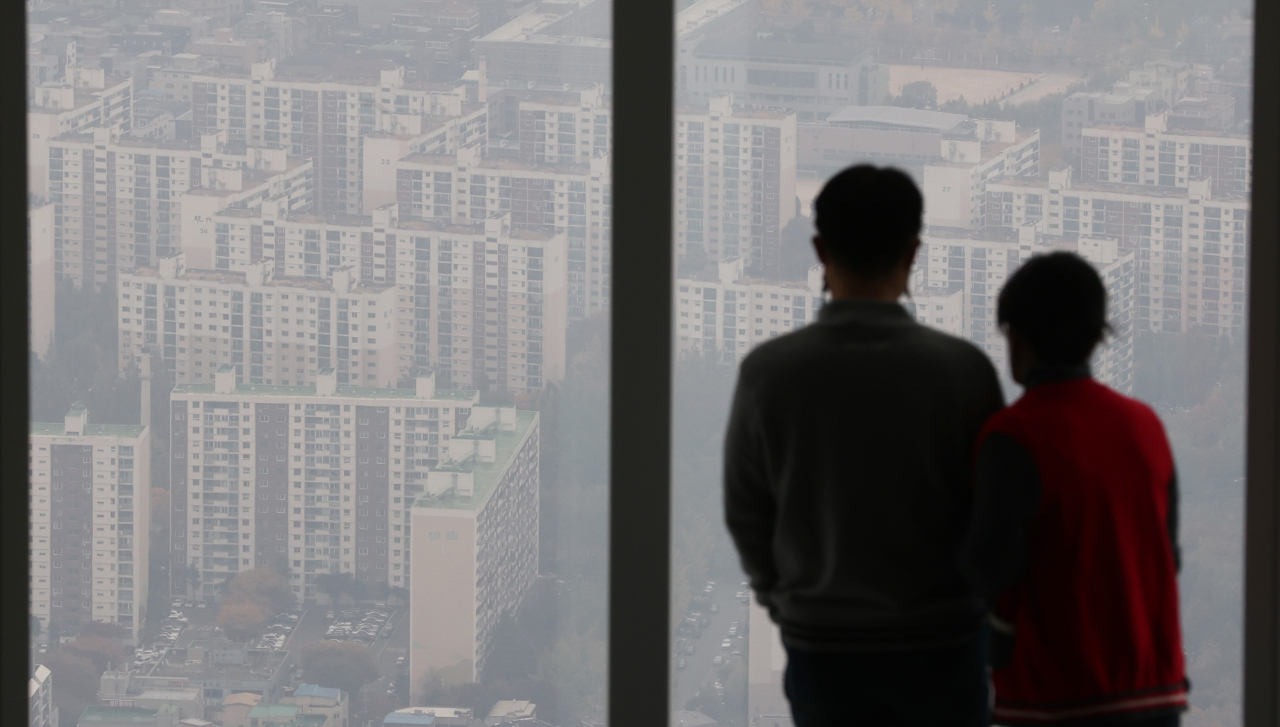 |
(Yonhap) |
The South Korean government is apparently caught in a real estate dilemma, as its aspiration to ease the supply shortage of “jeonse” apartments will likely contradict its efforts to cool the heated housing market.
While policymakers are struggling for a breakthrough, the announcement of jeonse-related measures will probably not take place within this week, according to multiple officials of the Ministry of Economy and Finance and the Ministry of Land, Infrastructure, and Transport.
The key hurdle is that any policy action that will encourage homeowners to actively put their property on the lease market may consequently trigger potential speculative demand as well.
In late October, the government said that it would soon unveil additional policies as early as within a month in order to alleviate the shortage of jeonse apartments.
But when Deputy Prime Minister and Finance Minister Hong Nam-ki addressed the real estate issue Wednesday, the jeonse issue was nowhere to be seen. The government’s measures were mostly plans to lower the tax burden for nonspeculative budget residence owners and to introduce a “phased” housing system to help homebuyers acquire ownership by accumulating stake throughout a preset period.
“(The government) is keeping a thorough watch on the jeonse market and making diversified efforts to attain balance between the housing sale market and the jeonse market,” was all that Hong said, falling short of the anticipated detailed actions.
Jeonse is a housing lease system unique to Korea, whereby tenants may occupy a residence for an initial two-year period by paying a lump-sum deposit instead of a monthly rent.
The system is generally seen as a valid residential scenario for those with limited financial resources, but is also leveraged as a speculative tool for landlords -- in the form of a “gap investment.”
The “gap” refers to the gap between a given asset’s market price and its jeonse deposit. Homeowners or aspirant buyers may maintain or purchase an asset upon this gap amount, as the deposit to be received from tenants would cover a substantial part of the sale price.
But the recently introduced set of tenant protection laws -- allowing tenants to prolong their jeonse contract period by another two years and imposing a cap on deposit hikes -- largely discouraged homeowners from putting their property up for jeonse lease, consequently weighing down on the overall market supply.
“(The government’s) mid- and long-term policy goal is to expand housing supply though public lease apartments, but in order to alleviate the current jeonse shortage, we are looking to add more short-term remedies,” said an official.
Meanwhile, market indexes have showed that the latest jeonse shortage hit a record-high level.
According to KB Kookmin Bank’s monthly housing market trend report released Saturday, the jeonse supply index for October came to 191.1 points, up 4.1 from a month earlier and reaching the highest level since August 2001.
The given index indicates the shortage of jeonse supplies compared to actual demands. The higher the figure within the cap of 200, the more serious the jeonse housing supply situation in the market.
The corresponding figure had fluctuated in the point range of 150-160 throughout most of the first half of the year, but soared to 180.5 in August, after the tenant protection laws took effect.
By Bae Hyun-jung (
tellme@heraldcorp.com)








